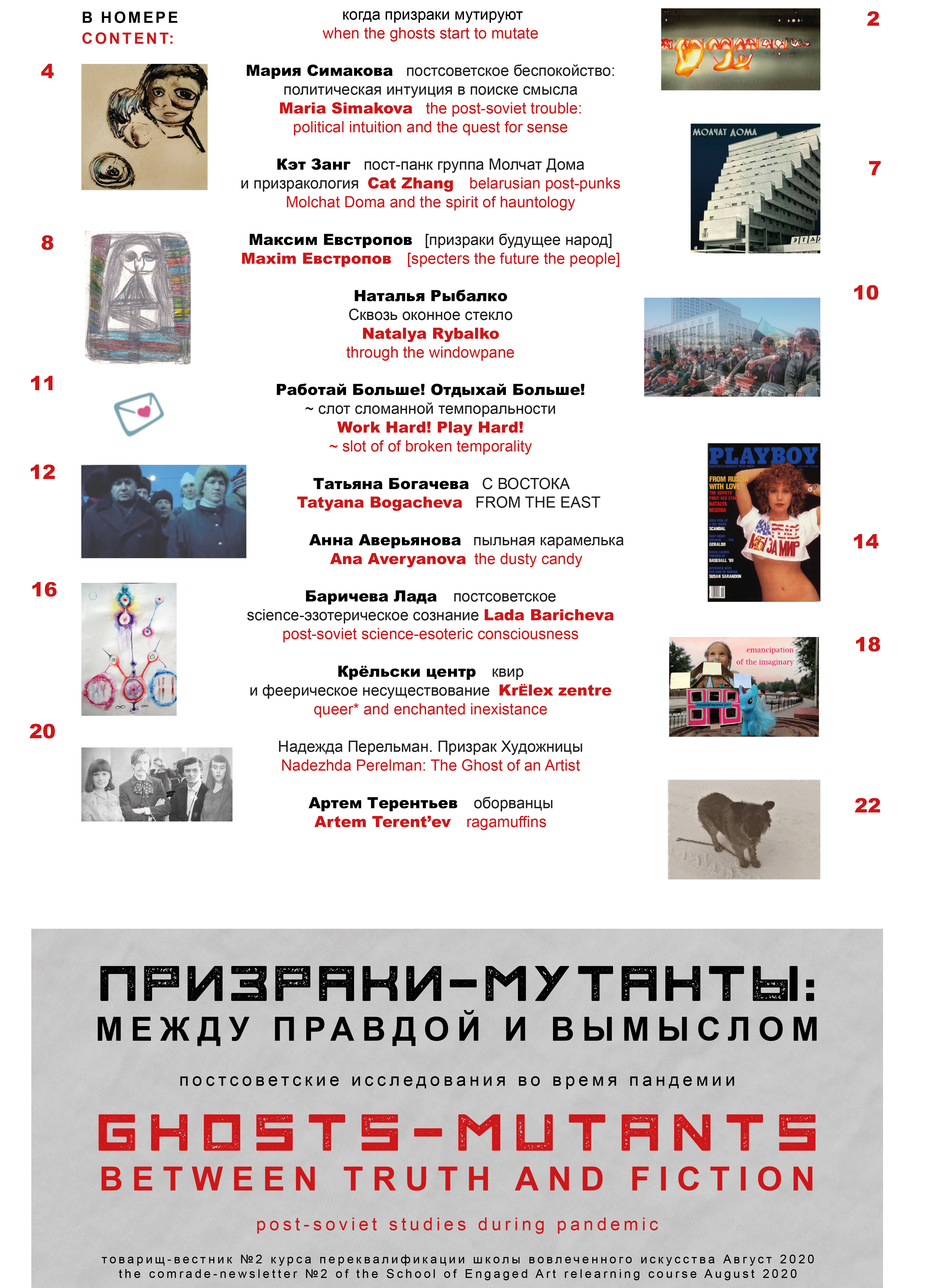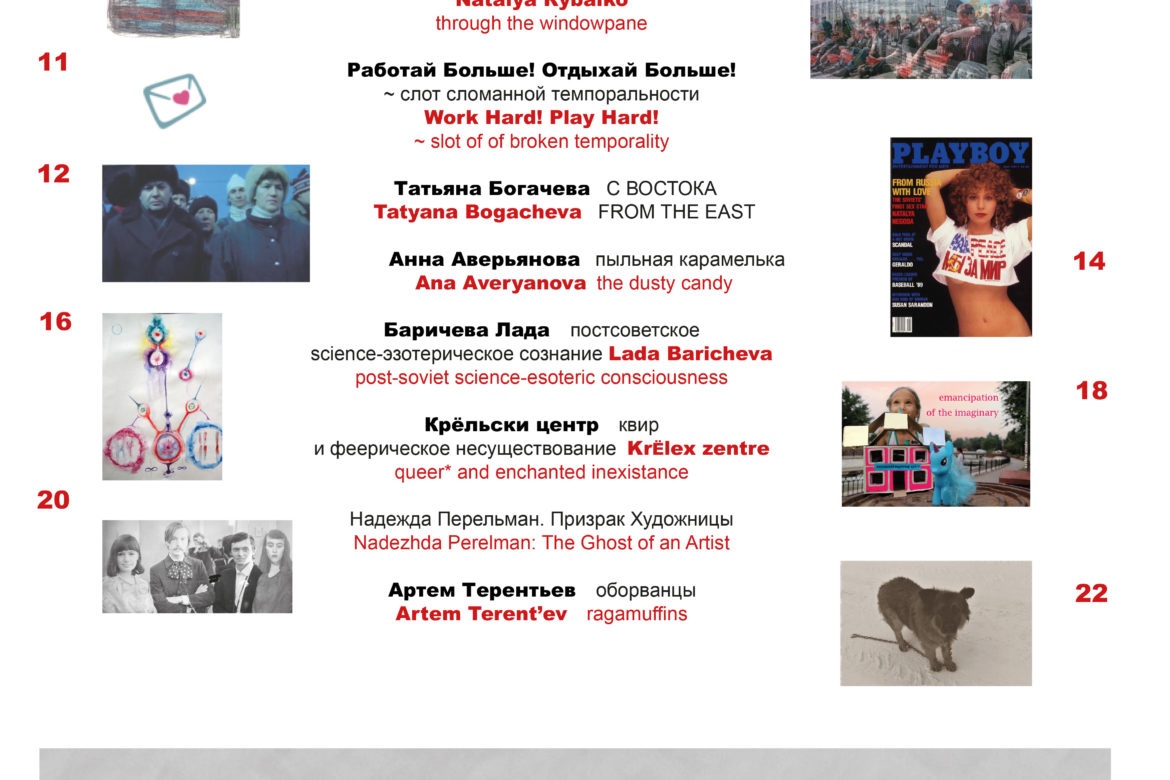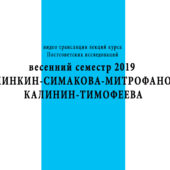This second issue  of our Laboratory for Post-Soviet Studies’ comrade newsletter features various texts, images, and issues that we worked with during our last semester of classes.
of our Laboratory for Post-Soviet Studies’ comrade newsletter features various texts, images, and issues that we worked with during our last semester of classes.
We were most interested in finding new ways to describe our own transformations and those of our habitat that would help us to grasp the past in all its compelling complexity, a past filled with inspiring hidden messages that we worked to decipher together. In Russia, as everywhere else, the struggle to reinterpret history is ongoing, and our modest efforts can be seen as an attempt to advocate for important messages from the repressed past that have become unexpectedly relevant for us today.
This publication includes writings by both course attendees and seminar instructors, as well as a range of content that explores our different approaches to research methodology. We haven’t striven to conform to academic publication norms; rather, we sought to create a space for personal artistic expression in the form of a print zine.
As we worked on our research, we became increasingly fascinated by hauntology, which, in our opinion, has a unique contribution to make to existing applied artistic approaches to describing the current dynamics of the post-Soviet situation. And, each in their own way, many essays in this issue narrate different modes of communication with all sorts of specters, ghosts, undead beings, and other strange, esoteric phenomena whose presence sheds some light on unique aspects of
ongoing social, mental and political developments.
At the very height of our preparations for the final project, when our collaborations were well underway, we, like everyone else, found ourselves paralyzed by the intervention of the virus. This unprecedented event significantly altered the way we finalized our art research—a practice that is never neutral, but always immersed in the urgency of what is happening to us and our community. Together we have experienced the shocks of quarantine and uncertainty, and we are likely still in a post-traumatic state whose effects may be partly comparable to the shock our society experienced in the 1990s at the moment of the Soviet Union’s collapse. We do not yet know what consequences these developments will bring.
This intervention by a virus—potentially living, potentially undead matter—resonated with our line of inquiry, and many of our research projects and writings began to mutate and begin to locate themselves through a situation of “infectedness.” We began to look for lines of affinity that could help reconcile our past and our current situation.
And so, new ghost mutants began to emerge—and we’ll be dealing with them for a long time yet if we want to distinguish truth from fiction.
***
We would like to express our gratitude to the Rosa Luxemburg Foundation (Moscow branch) for its targeted support of this program, and we very much hope that the results of our work will be welcomed and built on further by new generations of researchers.


